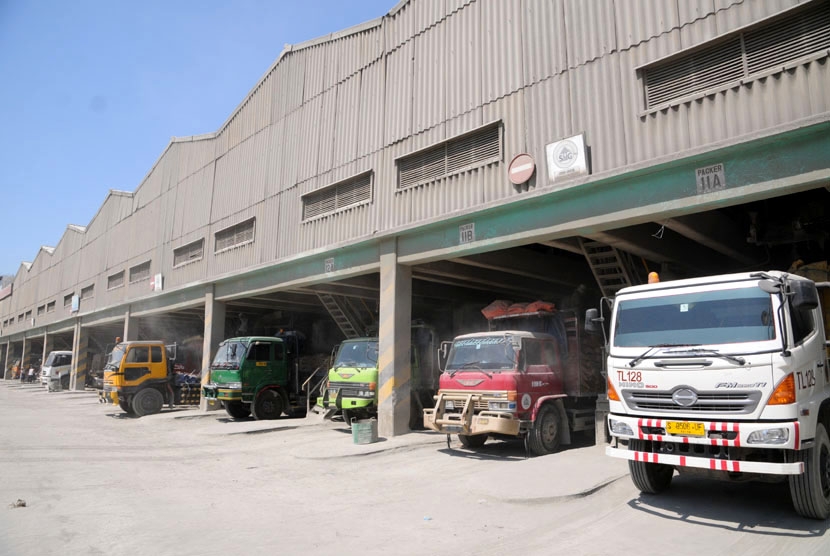REPUBLIKA.CO.ID, JAKARTA -- PT Semen Indonesia Tbk. has prepared capital expenditures worth Rp6 trillion for partly securing the national cement supply.
"Most of the funds will be used to finance the expansion and procurement of new machines for plants in Padang and Rembang to secure the national supply for 2015," corporate secretary Agung Wiharto said here on Tuesday (6/1).
He noted that national cement consumption is projected to reach 5 to 6 percent higher than last year's.
Agung expressed optimism that the two plants can start production as scheduled despite protests from a small number of people especially in Rembang, Central Java, concerning an environmental impact analysis (Amdal) issue.
"All the procedures required for Amdal have been carried out properly and in accordance with rules. We are optimistic that the judicial process at the Central Java administrative court will be completed soon," he stated.
On a separate occasion, environmental law professor from Padjadjaran University in Bandung Prof Daud Silalahi remarked that the act of filing a lawsuit by a non-governmental organization and six villagers to revoke the environment permit for constructing a cement plant in Rembang by PT Semen Indonesia had been too early.
According to him, the permit granted to PT Semen Indonesia has been based on Amdal and has been a logical decision made in stages and after various procedures.
Amdal is conducted based on calculations and researches by experts, who are known in their fields, and referring to general regulations such as spatial plans that have been determined by the government, he added.
"Amdal is a rule of the game. However, the project has not yet been implemented. So how can they file a lawsuit against something that has not yet been implemented? The lawsuit is premature and one that has been made based on mere assumptions," he pointed out.
He observed that the NGO that has joined the lawsuit has knowledge about Amdal as it has been involved in its process. People living in the area of the plant also have been involved in it.
The Amdal for the project had been issued after much public debate, he said.
"If anyone felt the Amdal was irrational, complaints should have been submitted during its public examination before it was produced," he noted.
He remarked that Amdal has been aimed at preventing environmental risks, so regulations included in it are tight.
If any violation of regulations are found later, then parties concerned can file a lawsuit against Amdal.
Hence, he said, the fears that the plant might cause drought and environmental damages, as claimed by the NGO and a number of people, cannot be called logical. Their worries were actually discussed before the Amdal was finally produced.
"It is possible that the Amdal has been produced in response to their fears," noted the professor who has contributed to the production of laws on environmental management in Indonesia.
According to him, the components required for the issuance of Amdal are the same across the country.
So, a lawsuit cannot be filed to challenge an Amdal that has already been legitimized, he said, adding a lawsuit can only be filed against a violation of an Amdal.


